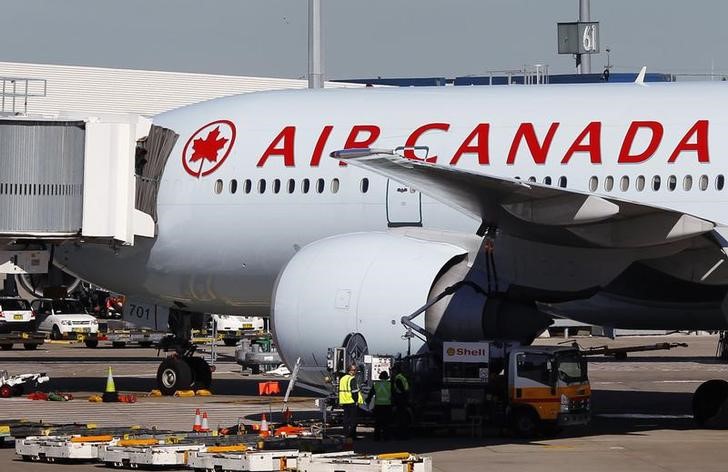(Bloomberg) -- Air Canada has removed the Boeing (NYSE:BA) 737 Max from its schedule until January pending regulatory approvals, joining Southwest Airlines (NYSE:LUV) Co. in scrapping plans for flights of the jetliner into 2020.
Canada’s largest carrier said the grounded jets will reduce capacity and curb earnings growth in the third quarter, even as the company posted profit that beat analysts’ estimates for the second quarter.
“The impact of the Boeing 737 Max grounding will be felt more acutely in our very busy summer period,” Calin Rovinescu, president and chief executive officer of Air Canada said in an earnings statement Tuesday. The removal of Boeing 737 Max until at least Jan. 8 “reflects our prudent approach to scheduling, giving customers certainty when booking their fall and especially their winter holiday travel.”
The Montreal-based airline said that third-quarter projected capacity is expected to fall about 2% compared with the same period in 2018, contrasting the originally planned increase of about 3%. Third-quarter earnings before interest, taxes, depreciation and amortization is expected to increase by about 5%, short of analysts’ estimates.
The firm has no visibility on reliable timing for the return to service of the aircraft but says it would look for opportunities to have some enter the fleet for either replacement flying or as backups if the aircraft are returned to service earlier, Rovinescu said.
Airlines around the world are feeling the effects of the resulting fallout from the global ban on Boeing Co .’s 737 Max, following two crashes that killed 346 people. American Airlines (NASDAQ:AAL) warned that profit this year would take a $400 million hit while Southwest Airlines removed the jet from its schedule into next year. The announcements came after Boeing said it would take a $5.6 billion pretax charge to compensate Max customers and that it might need to stop output of the narrow-body jet.
Air Canada has been the top performing stock in the Bloomberg World Airlines Index this year, gaining 74%.
